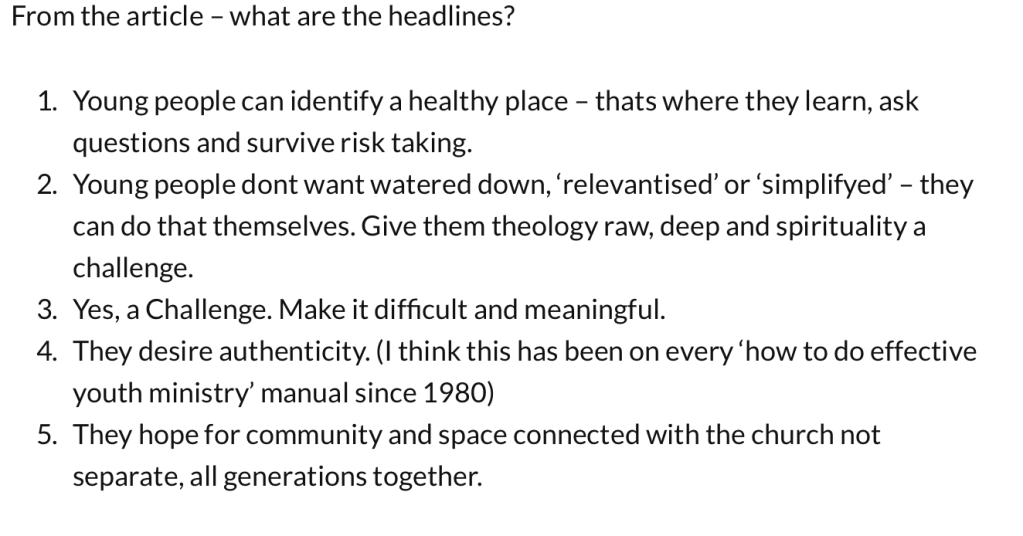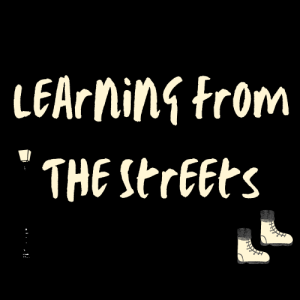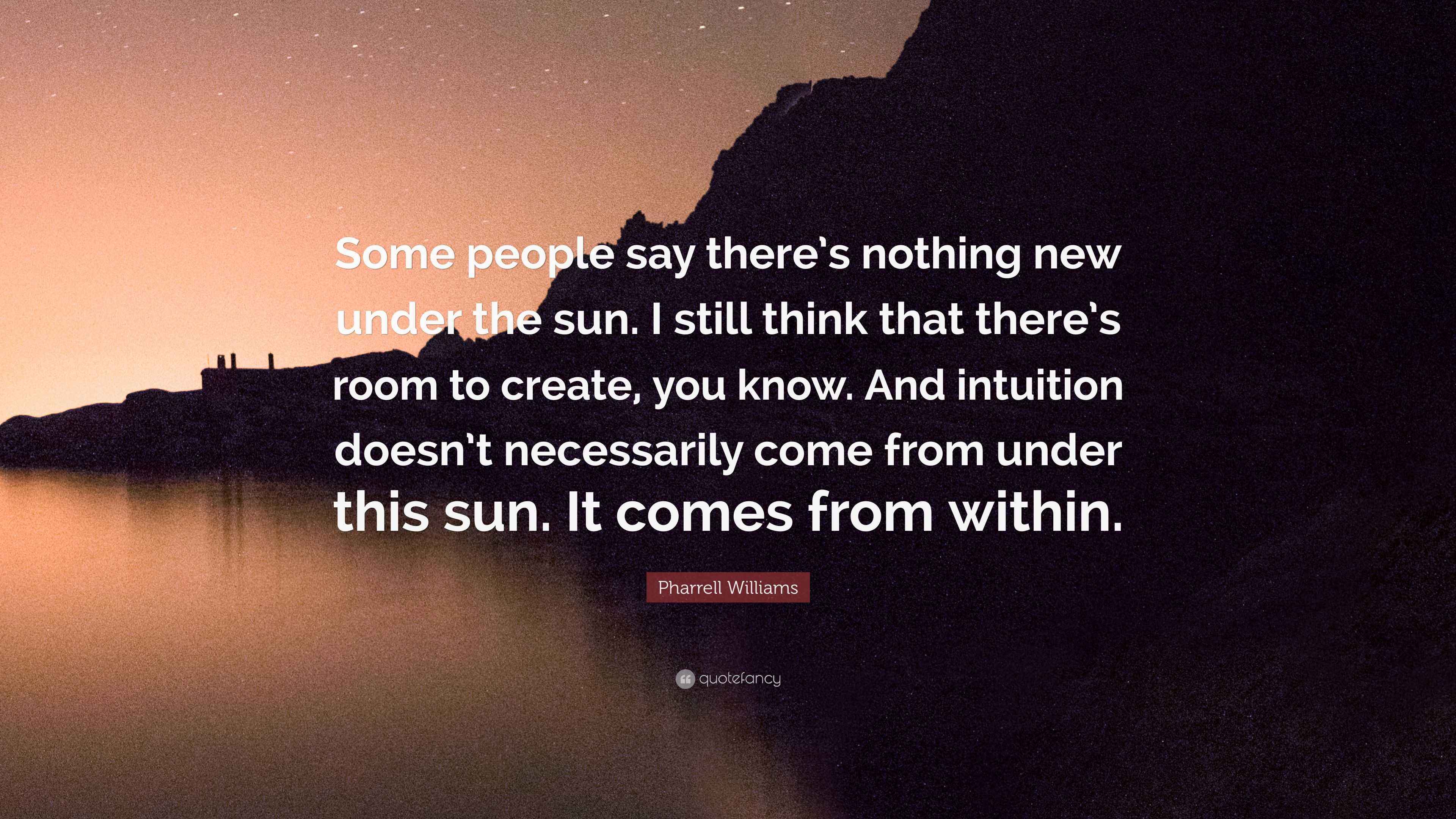What is it about young people that seems to be that they’re treated as something other that human?
And, before someone in the church responds to say that they have a healthy and positive respect for young people, it’s the church that whilst it generates and maintains a good number of youth work and ministry provision, might also be in danger of regarding young people as subhuman.
My recent case in point is Neil O Boyles book ‘Under construction’ which – if you read my most recent two pieces, details and shows examples of where young people are patronised (told that sex is for having babies), given simple answers to complex problems (you’ll not become a child killer, if you don’t watch video games) , restricting their view of sin, shame and maintaining a cultural view that the individual is responsible (whatever the horror situation is dealt with) and infantalising young people (something is interactive because it has ‘puzzles’ and join the dots). On one hand I had many issues with that book. Not least its view of God. But its view of young people is equally as odd.
And if this is endemic – what does this say about how the evangelical church – and the wider church view young people?
Its as if young people are less than human people…- a few examples:
Talking of Sub-human – There can also be a view that young people (for arguments sake the over 11s- the post primary schools) are somehow a weird, alien, arrived from space species – this was picked up by Christian Smith in 2003 (p259), when he urged US churches to not hold this view, seeing that those who are over 11 upwards are closer to the adults who read or write blogs like this, or run churches or are congregants, than the children in Sunday school and messy church that seem to be viewed as treasures and darlings. All of a sudden theres a collective defeatist disempowering thst ‘we don’t know what to do with them’ yet, ‘them’ has been known for 6 years already. The challenges is the attitude fuels the approach, and approaches are often lacking. Of course changed young people aren’t going to like what they had aged 9, but they’re not necessarily going to like high energy games or simple bible stories or moral talks either. But they’re not aliens, just changed…
What they might like – is being treated as a human – not an alien
Or maybe even – not a project, or a puzzle to solve and then boast about.
These pages, articles and theres blogs everywhere on how to reach, teach, keep, pass on the faith to young people. Young people (once the church has stopped putting its foot in its mouth about sex) is also on high alert for the quick win, model, method, way for arresting the decline of young people in churches, and now that project ‘employ a youthworker’ has changed to ‘employ a resource church faith enabler for millenials’ or ‘an outreach worker for the 25-40’s’ its as if the church, worry stats included this week, has given up on trying.
However. Whilst young people (the 11-25’s) in this case are mentioned. What about the over 65s or under 11;s – are churches bursting their seams with them? No- thought not…
Then, as Andrew Root suggests, the desire for young people in the church is not for their sake anyway, its so that everyone else can feel not only that the institution may survive, its also that Youthfulness=Authenticity in todays culture – so increasing young people can help those involved in it to feel as though its up to date, its real. Somehow. (Andrew Root, Faith Formation in a secular Age, 2016) Young people then, aren’t treated as Human, but as signifiers of institutional relevance.
In few parts of these discussions – of church growth and young people , does the subject of actual young people, actual processes, mission, values, and human dignity appear. Its high reaction, responsive, soul searching and trying to do better. But what if the following…
Instead of trying to project, solve, judge , patronise or reach young people (no one talks about reaching the over 75’s…)
Because, as my most read piece, since it was published, suggests, young people are treated as human, when it has been established what role they have in it – just like everyone else – or more so.
Why not instead work on thinking about young people as humans? Fully human, fully who they are in the sight of God at this present moment- not in need of change, but as they are…
Think of them as not them – but us
Think of them as spiritual – and actually religious
Think of them as gifted – and our task to harness those
Think of them as having passions – and adding resource to enable these passions to be realised
Think of them not as without, not as deficit – but with character, with determionation – who already in the midst show a kind of resilience, resourcefulness that would put adults to shame
Think of them as not ‘the youth’ with a ‘youth’ room – but part of the church
Think of them not as tokens to be paraded, a group to have sympathy for – but like every other human – with a contribution to make within the places where contributions are made by everyone. Think of them as not done to, but those who create for themselves, and to be heard
Matt Haigs Book ‘Notes on a nervous planet’ says the following – in relation to all of us, and the state were in on the planet we currently occupy, what if we reminded young people, and we remind ourselves, of the collective humanity that we are all part.
‘Remind ourselves that we are an animal united as a species existing in this tender blue speck in space, the only planet we know containing life. Bathe in the sentimental miracle of that, define ourselves by the freakish luck of being alive, and being aware of being so. That we are all here on the the most beautiful planet we’ll ever know’
What if there was something about the very young people in your church and parish whose humanity imight be revealed to you? What if their place on this glorious planet was no more or less significant than yours – what if young people are aware of participating in something much bigger than they know yet – and they dont have those dreams and stories and actions quashed by the very adults who say that are working with them, because there’s a drive to be pure from sin all the time.
Maybe the first thing is not to talk about young people as if they’re not in the room. But they are. Not in the room about them…. and where their involvement is too purchase attendance tickets to the thing we think they might like. Hmm, some humanity there.
What if there isn’t a new model, method or idea – but what if theres just something to be said for listening, inviting, sharing space and enabling young people to belong, to do, and to be challenged, and have opportunities to flourish and make decisions.
Maybe if churches thought about young people as the humans that the other humans would like to be treated – then this might be a good first step.
Do I really need to make a theological case for treating young people as Humans, from the biblical material? No thought not, most of you youth workers recite it all anyway, and adults hear the same messages…; Created and made in the Image of God, Loved, gifted, persons who can be in conversation with God, in community, capable of feeling, emotion, intellect, generosity.. and participants in something God is calling them to – and that needs a conversation, respect and time – not a programme, a method or a model.
What if we began to reflect seriously about the humanity of ourselves, and the young people who are part of our communities, parishes, churches and groups?
And took what we might find seriously..?
Bryan suggests that ‘We understand who we are primarily through reflecting on the story of our lives. Every day we share stories about what happened to us and what we are anticipating or hoping for in our future, but each of these narratives is embedded in the broader stories of our family, the social groups we belong to , society, and beyond that to the unfolding history of the world’ (Bryan, 2016)
Locating and regarding young people as Human, and developing their true humanity is what we are to do – again, and as Bryan writes, and I conclude, with this to reflect on
‘An essential part of who we are is rooted in human beings as co-creators and participants in the unending story of God. It is the living story of God which defines who we are and who we become’ (Bryan 2016, p5)
How might young people be part of the stories of the church as they are?
How might church be part of the stories of the lives of young people?
How might church encourage the stories of young people as they participate in Gods call in the world?
And not just that, creative, quiet, loud, questioning, faithful, determined, thoughtful, considerate, loyal, you know – just like the rest of us…
References:
Christian Smith, 2003, Faith Formation in a Secular Age
Bryan, Jocelyn, 2016, Human Being
O Boyle, Neil, 2019 Under construction
Root, Andrew, 2016, Faith formation in a Secular Age
Haig, Matt, 2018, Notes on a nervous planet







